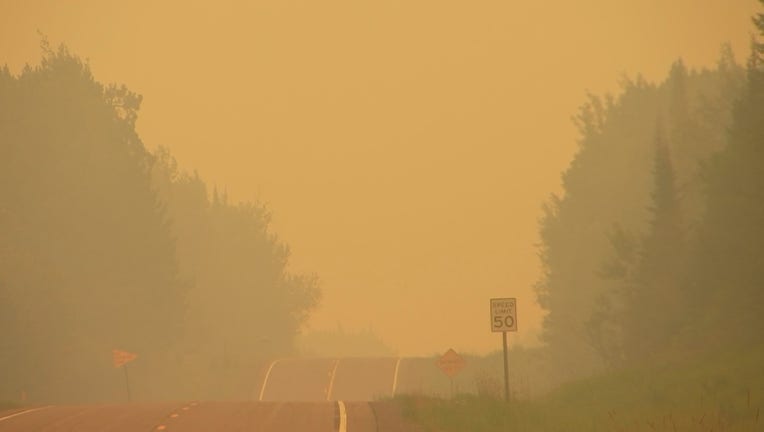Minnesota air pollution still a concern, study finds

The sky during a wildfire in northern Minnesota.
ST. PAUL, Minn. (FOX 9) - The Minnesota Pollution Control Agency is asking for increased funding and action to reduce air pollution, especially in low-income and communities of color.
In a recently released report, the MPCA says further work is needed to lessen the dangers of air pollution from transportation, permitted facilities, and wood burning. Additionally, since 2015, a spike in air pollution from wildfires has been a contributing factor, and one that is expected to continue because of climate change.
"This new report paints a clearer picture of air quality throughout Minnesota and where communities are most impacted by multiple sources of air pollution," MPCA Commissioner Katrina Kessler said in a news release. "We must continue to prioritize efforts to reduce pollution in communities where people of color and low-income residents live by working with impacted communities to build trust and by fostering transparent and inclusive permitting processes so that all Minnesotans can benefit from clean air."
While the report says areas of the state have improved their air quality, more work is needed.
A few areas of improvement cited in the report include:
- Implementing Minnesota’s partial ban on trichlorethylene (TCE).
- Continuing work with Clean Air Minnesota, a public-private partnership, to reduce nitrogen oxides (NOx), particulate matter (PM), and volatile organic compound (VOC) emissions by over 600 tons.
- Awarding $14 million in Volkswagen Settlement funds to support transportation electrification and the replacement of high-emitting diesel equipment. These grants reduced emissions by 1,900 tons of NOx, 190 tons of PM2.5, and 37,000 tons of greenhouse gases. 29% of funds have been awarded to projects in areas of concern for environmental justice.
- These grants reduced emissions by 1,900 tons of NOx, 190 tons of PM2.5, and 37,000 tons of greenhouse gases.
- 29% of funds have been awarded to projects in areas of concern for environmental justice.
- Coordinating with tribal nations to swap wood stoves for newer, less-polluting models and storing wood to ensure it is clean and dry for burning.

